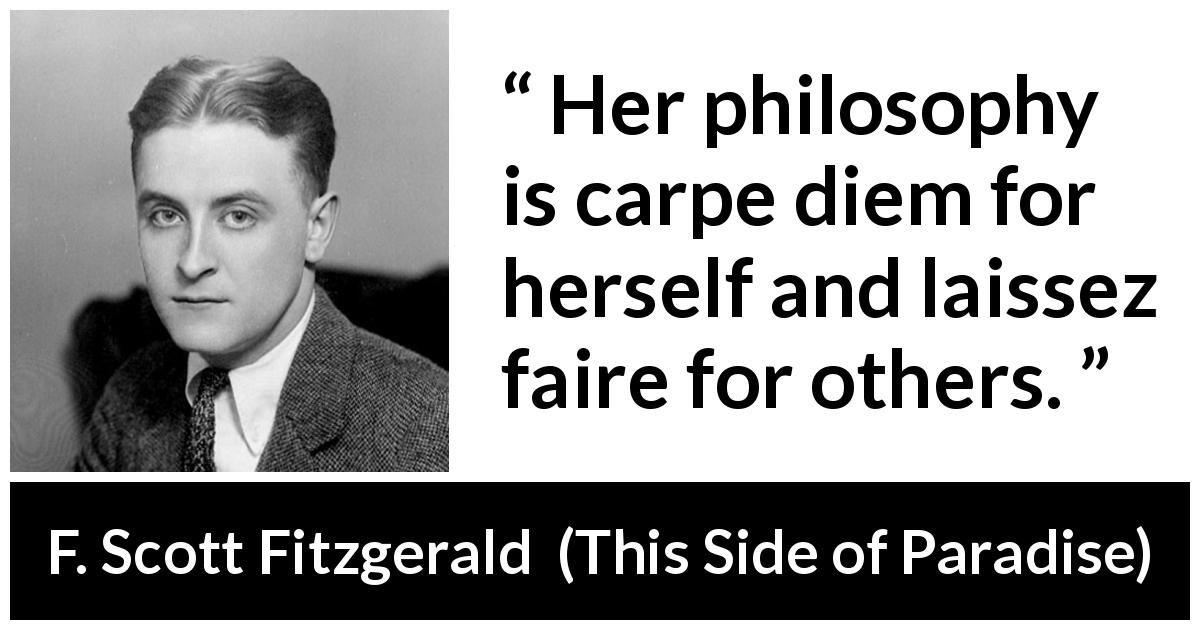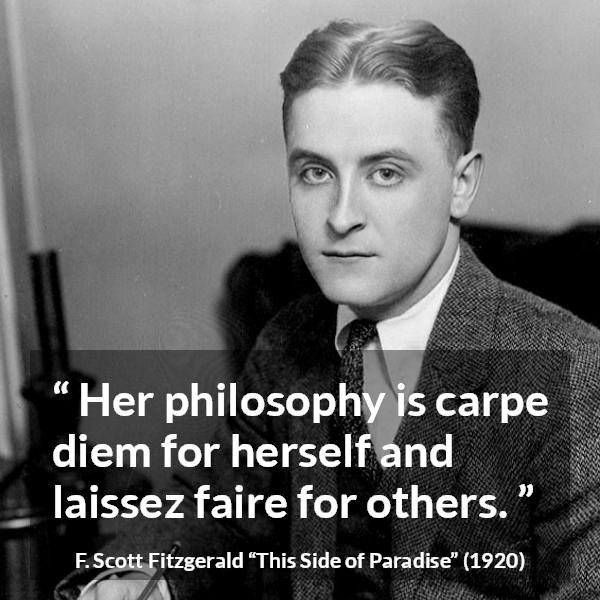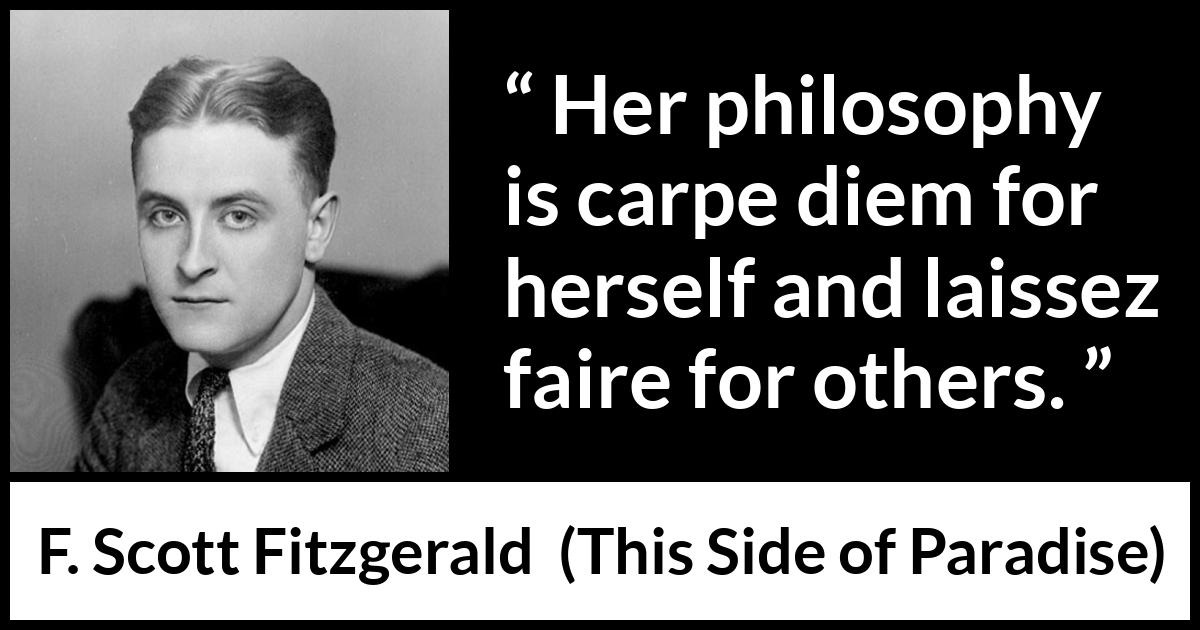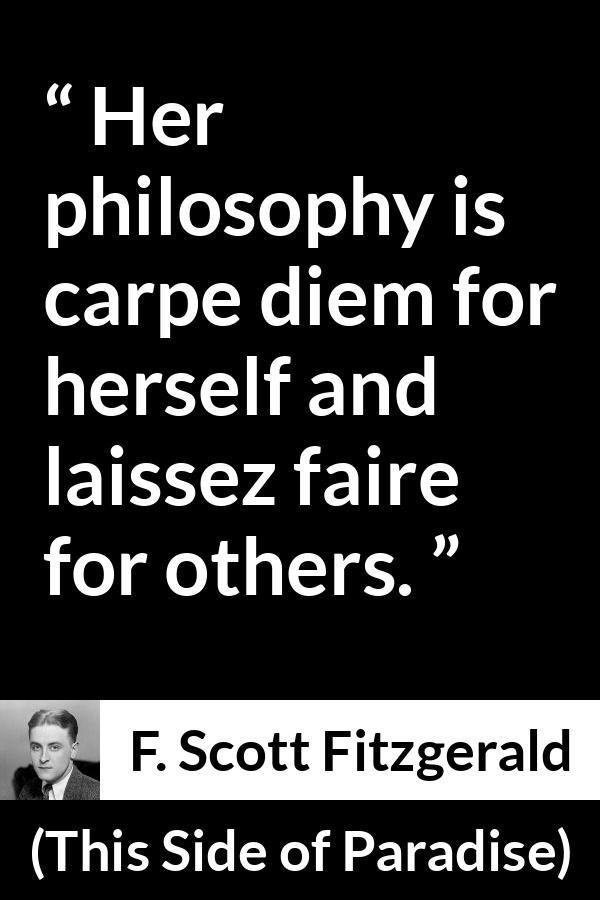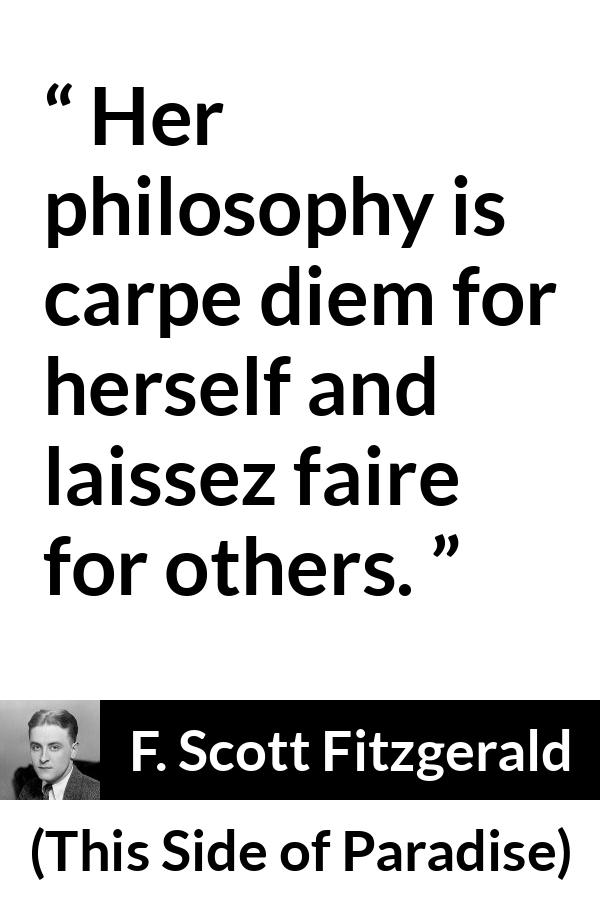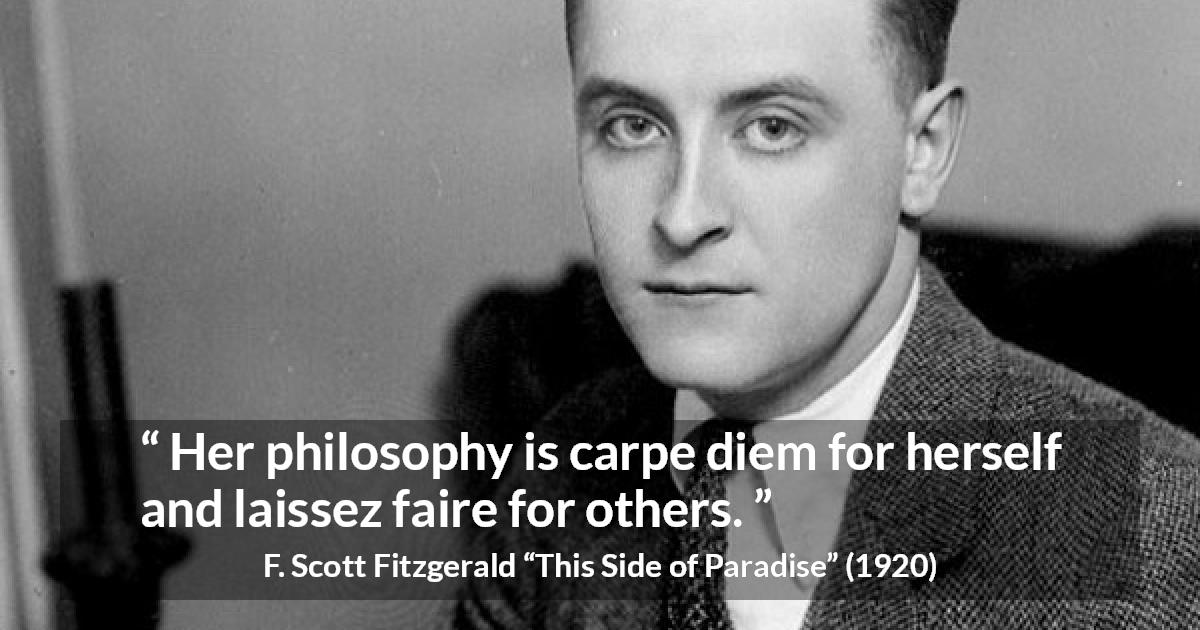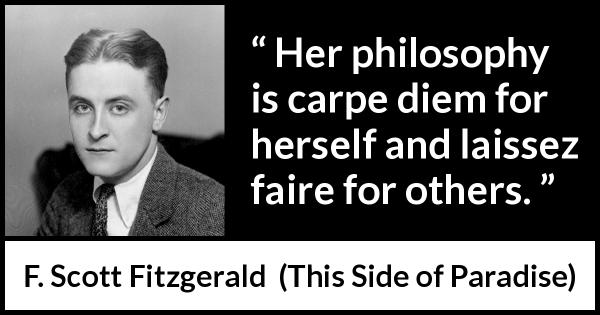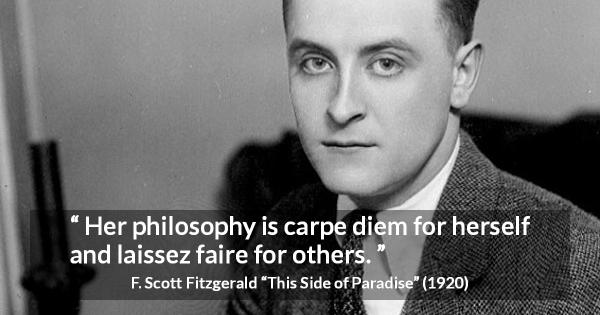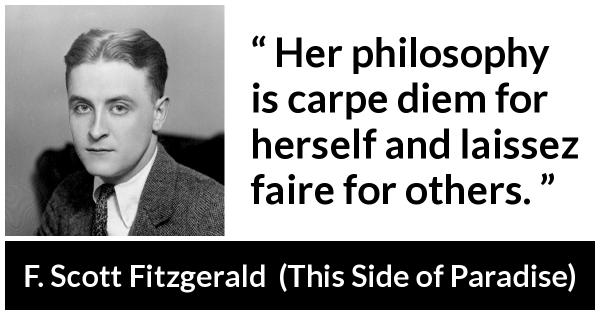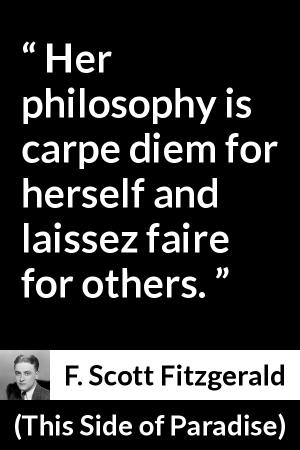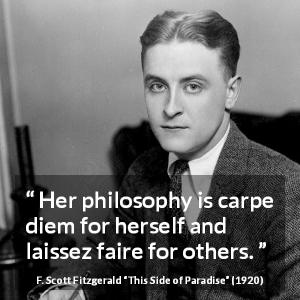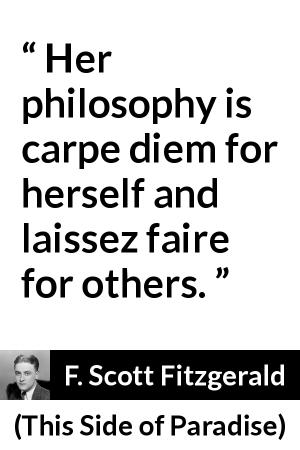“ Her philosophy is carpe diem for herself and laissez faire for others. ”
F. Scott Fitzgerald, This Side of Paradise (1920). copy citation
| Author | F. Scott Fitzgerald |
|---|---|
| Source | This Side of Paradise |
| Topic | freedom woman present |
| Date | 1920 |
| Language | English |
| Reference | |
| Note | |
| Weblink | http://www.gutenberg.org/files/805/805-h/805-h.htm |
Context
“Her fresh enthusiasm, her will to grow and learn, her endless faith in the inexhaustibility of romance, her courage and fundamental honesty—these things are not spoiled.
There are long periods when she cordially loathes her whole family. She is quite unprincipled; her philosophy is carpe diem for herself and laissez faire for others. She loves shocking stories: she has that coarse streak that usually goes with natures that are both fine and big. She wants people to like her, but if they do not it never worries her or changes her. She is by no means a model character.” source
There are long periods when she cordially loathes her whole family. She is quite unprincipled; her philosophy is carpe diem for herself and laissez faire for others. She loves shocking stories: she has that coarse streak that usually goes with natures that are both fine and big. She wants people to like her, but if they do not it never worries her or changes her. She is by no means a model character.” source
Meaning and analysis
Kwize Master
This quote describes the character of Rosalind, a smart and beautiful woman who is “quite unprincipled”. Literally, “carpe diem” means seizing the day and not worrying too much about the future. “Laissez-faire” derives from an economic theory in which government supports free market through weak regulation. In this context, the term refers to a rather individualistic worldview.
useful
useless
